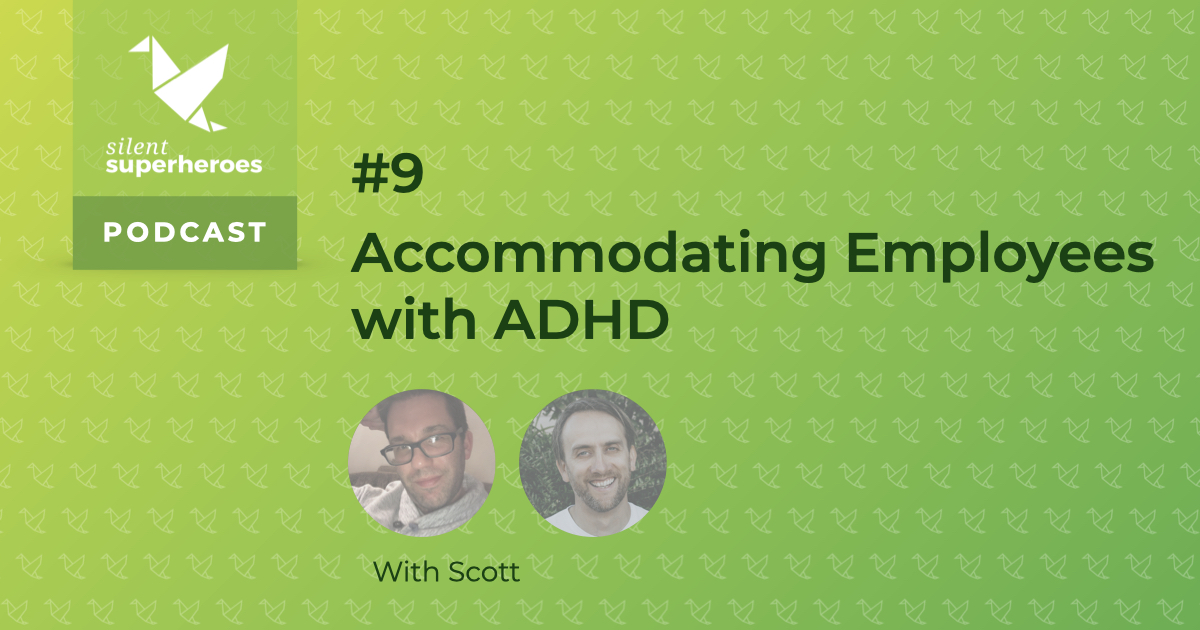“I don’t want to be anybody else, I want to be me.” – Scott
Scott is part of an active ADHD community on Twitter, focusing on ADHD advocacy in the UK. It was while working as an online bingo presenter a colleague suggested he might be on the autistic spectrum, and that suggestion put Scott on his path to his ADHD diagnosis. Now, Scott is no longer content with “fitting in” and isn’t going to apologize for his ADHD. Because of this, Scott advocates on behalf of the ADHD community for greater acceptance of the condition and the people who live with it.
Listen To Episode 9
Podcast: Play in new window | Download (Duration: 49:58 — 24.4MB)
Show Notes
In this episode, Scott walks us through his journey from disruptive kid, through cruise host, online bingo caller and customer service in a call center. We also talk about the US and UK mental health care systems, concluding that they’re different and neither is good. Scott tells us about his movie “Misunderstood”, currently in development, about a character with ADHD. Finally, Scott and I discuss his communities answer to the question “How could employers do a better job of accommodating employees with ADHD?”
Links
- Ideas for accommodating ADHD employees at work (Twitter thread)
- ADHD Action (organization)
- ADHD Foundation (organization)
- Ant & Dec (British TV personalities)
- Rory Bremner (British TV personality)
- One Flew Over The Cuckoo’s Nest (movie)
- Scott’s social (Twitter)
About ADHD
Attention-deficit/hyperactivity disorder (ADHD) is a chronic condition that affects millions of children and often continues into adulthood. ADHD includes a combination of persistent problems, such as difficulty sustaining attention, hyperactivity and impulsive behavior.
Children with ADHD may also struggle with low self-esteem, troubled relationships and poor performance in school. Symptoms sometimes lessen with age. However, some people never completely outgrow their symptoms and experience ADHD at work. But they can learn strategies to be successful.
While treatment won’t cure ADHD, it can help a great deal with symptoms. Treatment typically involves medications and behavioral interventions. Early diagnosis and treatment can make a big difference in outcome.
Getting Support
Remember, the people you hear on Silent Superheroes are sharing their opinions about mental health and mental illness. They are not giving advice. For that reason, please consult with your care provider before making a change to your treatment approach.
It’s important to take your mental health seriously. Consequently, if you need to speak to someone you can call 1-800-273-8255, or text crisistextline.org on 741741. Both provide 24×7 confidential counseling to people in the United States. Worldwide visit http://iasp.info/resources/Crisis_Centres/
Because you listened to the podcast, you can help others find it by leaving us a review on iTunes. Or if you don’t use iTunes, leave a review on your favorite podcasting service.


